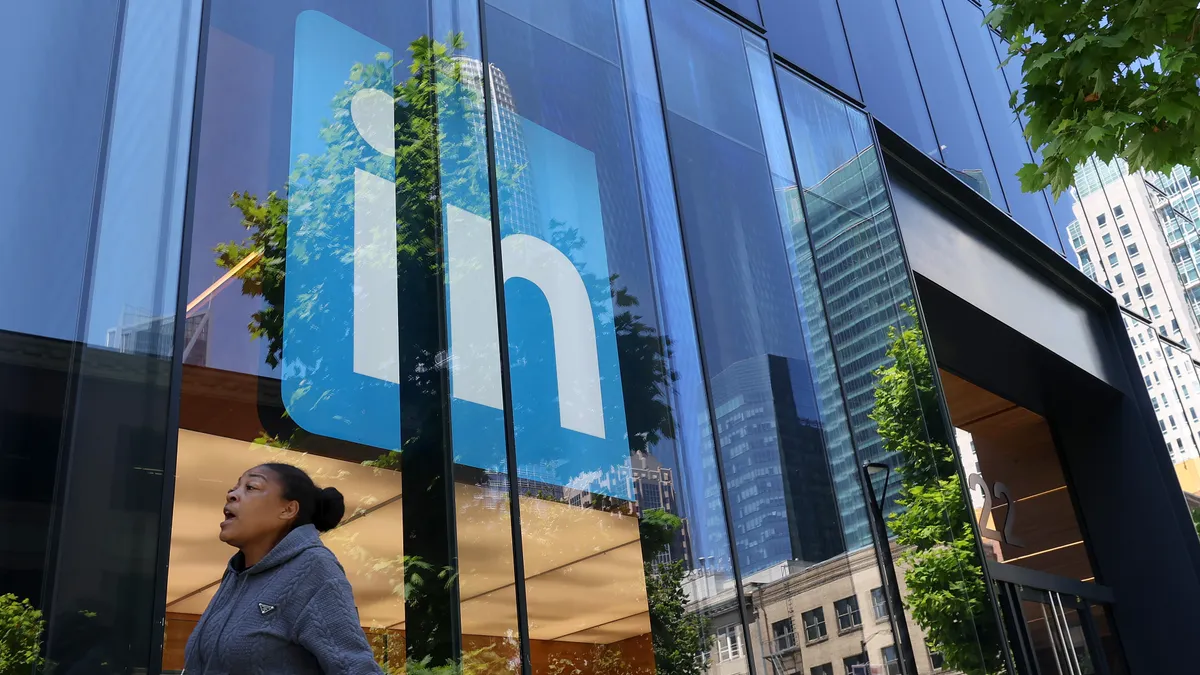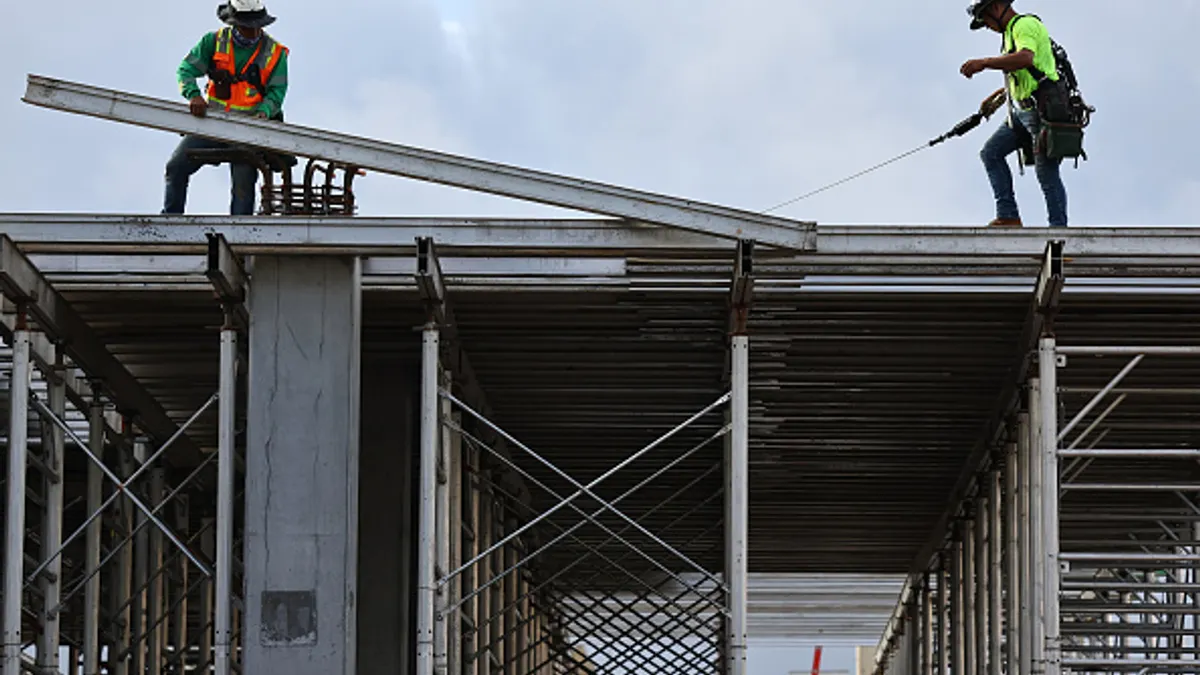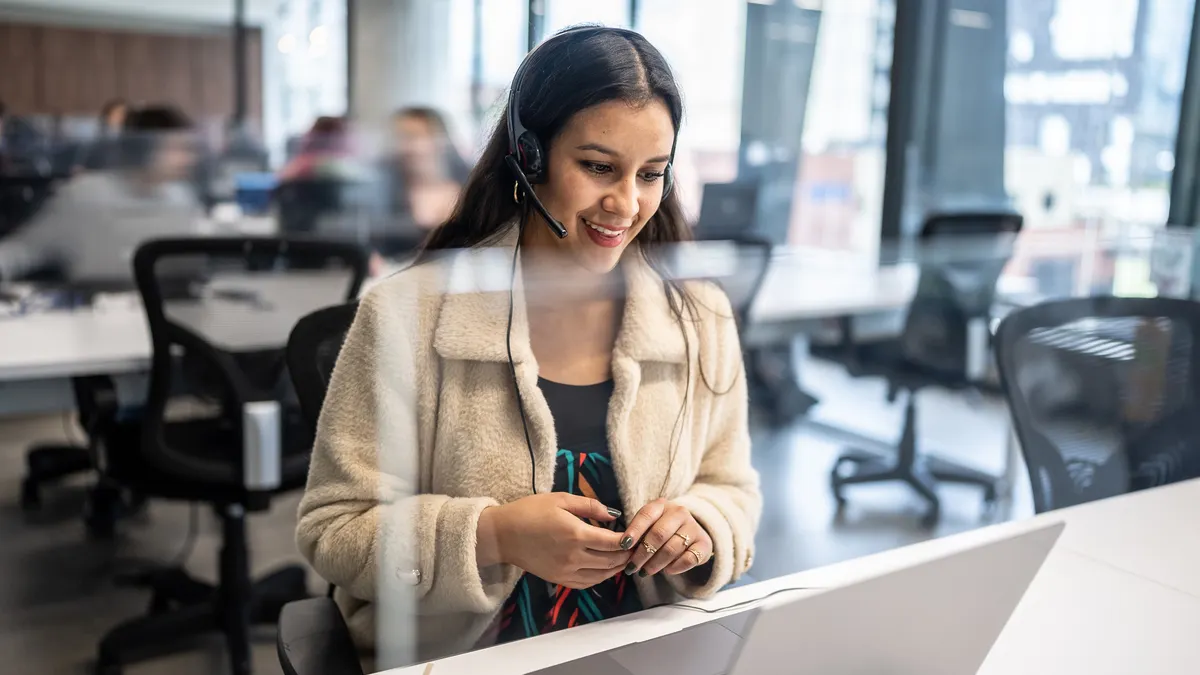Company diversity, equity and inclusion commitments aren’t just a concern of HR teams or socially-minded consumers. They’re a consideration of job candidates as well — particularly those hailing from Gen Z, according to data from networking platform Tallo. Of the more than 1,400 Gen Zers (that is, young adults born after 1996) surveyed for the July 2021 report, 99% of respondents said workplace DEI is important to them. Likewise, 87% of respondents said that it is "very important" to them.
And yet 38% of respondents said they consider American workplaces to be diverse, equitable, and inclusive. Tallo found that accessibility and inclusion of people with disabilities, especially people who identified as neurodivergent, were crucial factors in Gen Zers’ likelihood of applying for a job.
For those unfamiliar with "neurodiversity," sociologist Judy Singer coined the term to encompass the diversity of human brains, including people with autism, ADHD and dyslexia. Nick Walker, a critical autism researcher and an associate professor at the California Institute of Integral Studies, defines it as "the diversity of human minds, the infinite variation in neurocognitive functioning within our species."
About 1 in 5 respondents told Tallo they decided not to apply for a job because the company lacked resources for employees identifying as neurodivergent. Additionally, 80% of respondents said they’d be more likely to apply to a company who had materials for employees identifying as neurodivergent.
Inclusion of neurodivergent workers is ‘a must-have’
Pexels
The Americans with Disabilities Act requires most U.S. employers to provide accommodations for workers with disabilities, including intellectual ones. But basic ADA compliance may not cut it anymore.
As written in Tallo’s report, diversity and inclusion strategy is "a must-have, no longer a nice-to-have." Casey Welch, Tallo’s CEO, told HR Dive that employers should view Gen Zers’ stance on disability rights with optimism.
"Understand that it’s a great opportunity," Welch said, adding that workplace education on neurodiversity is important. He also said that building a framework for neurodivergent new hires is a matter of ensuring their comfort. This can look like creating an employee resource group for workers with disabilities.
"More often than not, you'll find out that people will step up and say, ‘I would like to lead this group. I would like to participate in it.’ Because, odds are, they already went through similar challenges. They understand them, they can speak to them, and they have worked within this environment," Welch said.
"What better people to help represent the company and help steer it in the right direction than your own employees, who have done it?" he continued. "Let them be part of your solution. Don’t try to take it on, you know, all yourself."
A timely example comes in the form of Randstad’s disability resource group revolutionizing hybrid work at the company. In an interview with HR Dive, Chief Diversity and Inclusion Officer Audra Jenkins explained how Randstad’s Abilities In Motion business resource group started a digital co-working space. "Some people were struggling with working from home, because they need to be able to see someone else in their space to focus as part of their disability," Jenkins said.
"We started what they call ‘co-working hours,’ where you can log on to a Google Hangout and you can work alongside someone. You may have your introductions and greetings, but you're not chit chatting; you're just working. You feel like you're with a group of people while you're doing your work, so it gives you that mental stimulation that you are looking for, from an abilities perspective."
Jenkins has also considered scheduling accommodations for neurodiverse workers. "Maybe some folks have a mental disability where they can focus better in the mornings versus the afternoon. [For example,] maybe they need to have most of their meetings before noon and then the rest of the day, they do independent work," she said. That, she added, is an easy accommodation to implement.
What better people to help represent the company and help steer it in the right direction than your own employees, who have done it?

Casey Welch
CEO of Tallo
But first, Jenkins said, employers need to ensure their company has a culture where employees feel safe enough to ask for these kinds of accommodations. Similar to Welch, Jenkins said that learning is critical. Employers might offer trainings on neurodiversity and other topics related to disability, just as they hold LGBTQ+ trainings or veteran status trainings.
Disability inclusion should touch every part of recruiting
Sara Hart Weir, a disability rights expert and a senior associate at the Institute for Workplace Skills & Innovation, said that employment hiring often leaves people with disabilities by the wayside. "It starts even before the job is posted," she told HR Dive. One way that talent teams can make their recruiting process more inclusive is through community outreach. Another way is through re-examining the literal framework for hiring, through an accessibility lens.
"We're really encouraging employers to look at their recruitment strategies in terms of how they engage with local disability organizations — the statewide vocational rehab and rehabilitation services and agencies. But also in terms of how they design their recruitment platforms for online applications, phone interviews, et cetera," she said. "A lot of opportunities around resume-building and application submission should focus on the skills that an individual can bring to the workplace — rather than weeding out individuals by academic credentials or opportunities like that."























